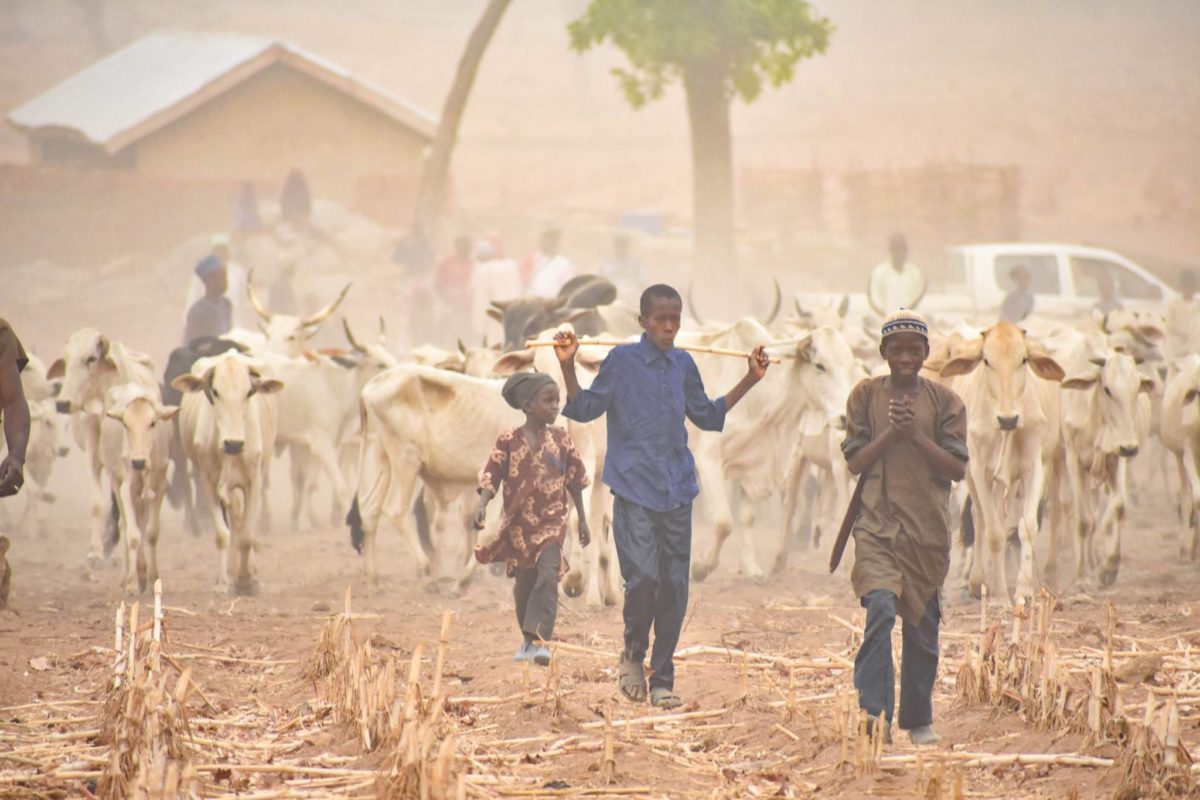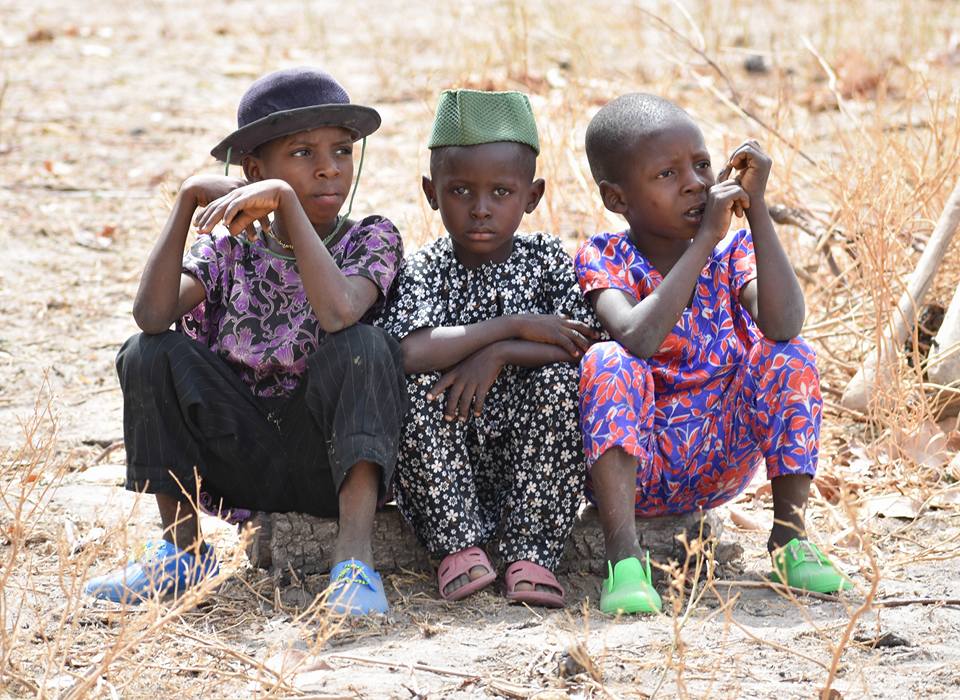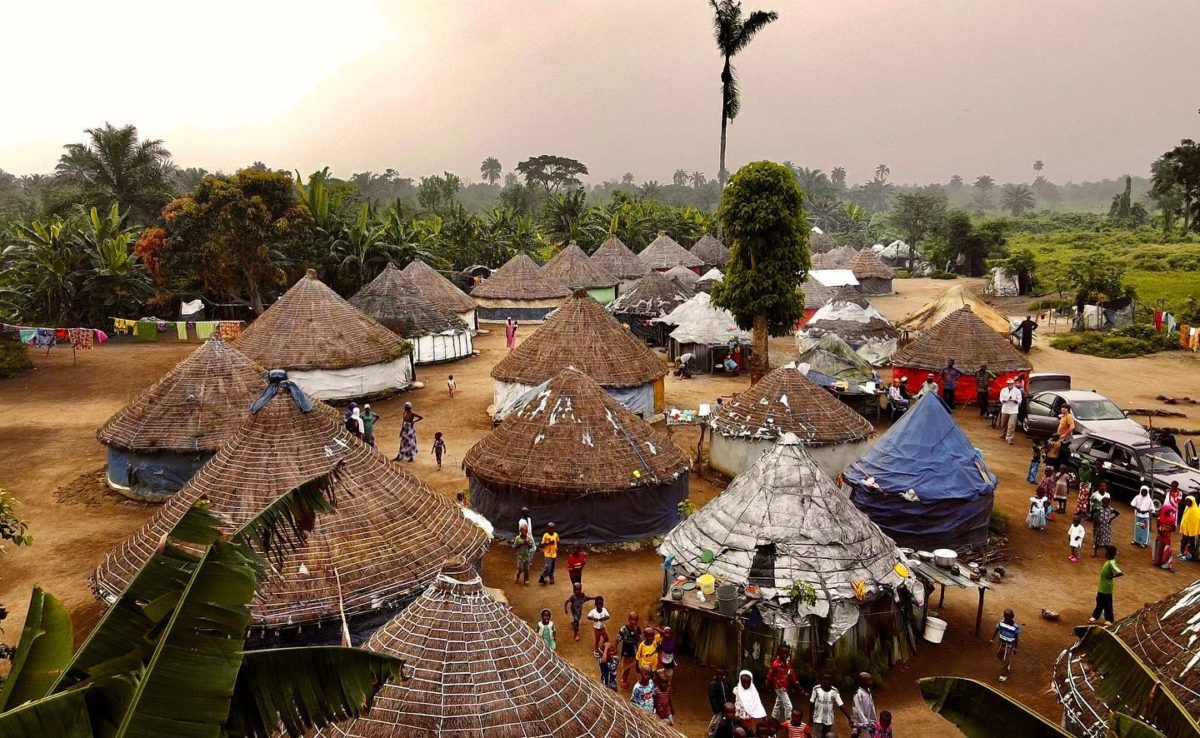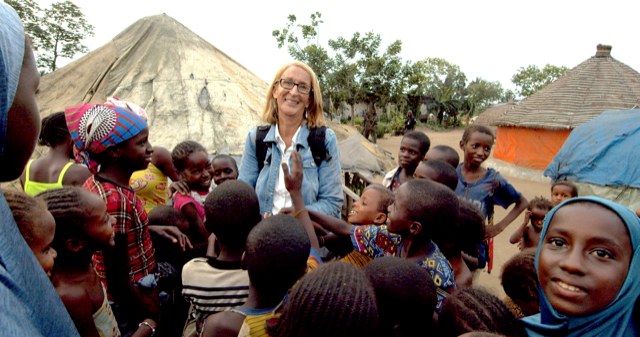Since 2005 Phyllis Sortor has been on a mission of peace in Nigeria.
That’s the year Phyllis arrived in the country as a missionary. She began to notice the women and children who came to the river near her home. The kids splashed in the water as their moms washed their family’s laundry. Phyllis heard the children’s joyful giggles and snatches of women’s conversation.
One day she asked a man who these beautiful people were. He told her they were Fulani, but she shouldn’t bother with them. They were nomads who lived in the bush with their cows. They moved around to find pasture, taking the farmers’ land for their cattle.

Phyllis was a missionary kid in Mozambique. Growing up in Africa, she had a strong sense of the injustice of discrimination. “Why are we as white people considered better than those with dark skin?” she wondered.
So when she heard the man’s advice, and his blatant discrimination she determined in her heart to get to know the Fulani.
She began with friendship. From chiefs to children, Phyllis reached out in love to the people. When a prominent Muslim chief came to her and asked if she would educate his children, she said of course she would. But if that were to happen, she would include Bible classes for the children and the school would hire Christian teachers. The chief agreed.
So far they have built eight primary schools with over a thousand children enrolled across the country. In those schools both Muslim children and Christian children learn and play side by side.
Because the Fulani are nomadic cattle herdsmen, and good pastureland is difficult for them to find, there are often disputes over the land. But through Schools for Africa, the government of Nigeria has provided land for holistic land and livestock management with rotational grazing on reserves. This system allows for healthier land and better managed herds. Now this group of Fulani herdsmen live in villages rather than the bush, and don’t need to move on in search of fresh pastureland for their animals.

There are now three such grazing reserves. One of them, Ero Mountain Grazing Reserve in Kogi State, is a teaching reserve. Conditions for the herdsmen and their families have improved greatly since the establishment of the grazing reserves.
This is not all. The love of God flows from Phyllis and has led to many people finding Christ. She maintains her desire for justice for all people and is a champion for the Fulani. They know she loves them, and they love her.
But all of that nearly came to an end when, in February 2015, Phyllis was kidnapped by gunmen who held her for 12 days while they negotiated a ransom. The experience was harrowing. She thought she would die. But the Lord sustained her. Each time her Nigerian church gathered they sang: “I must tell Jesus all of my trials; I cannot bear these burdens alone; In my distress he kindly will help me, He ever loves and cares for his own.”¹ And then they’d pray, adding to the prayers of people all around the world on Rev. Phyllis’ behalf.
After the kidnappers released her, Phyllis returned to Seattle for a time of healing. While there, the Lord lifted what felt like a big boulder from off her chest, a weight of fear. Within four months of her kidnapping she was home again in Nigeria with a deep sense of peace.
The people she served had always loved and trusted Rev Phyllis, but that she would come back to them after her ordeal endeared her to them all the more.

Phyllis continues to serve the Lord and her beloved Fulani in Nigeria. God has been gracious to Phyllis and to her people.
——————————
The amazing story of Phyllis’s kidnap and the redemption that came as she was set free have been made into a documentary. It is called “Kidnapped Redemption” Now in the final stages of editing, the production team plans to submit it to several film festivals. In 2022 it should be available to stream or to purchase on DVD.
For now, you can watch the trailer for the documentary below.
There is much more to the story than I can share here. But you can learn more through the Schools for Africa blog, the Schools for Africa Facebook page, and the Kidnapped Redemption website.
You can also find Phyllis’ latest book, Kidnapped Redemption: My Story. And if you would like to get further information about the film, you can subscribe to their email list by clicking this link and scrolling to the bottom of the page.
Go in peace, and may the peace of God go with you,
Ginger
¹”I Must ‘tell Jesus,” words and music by Elisha Hoffman (1894)
All photos are from Schools for Africa and are used by permission.





The bravest and most determined woman to overcome mountains of obstacles to change every day life of the rejected Fulani, through her love and guidance of the Living Holy Spirit of Jesus Christ!
Yes, Phyllis is amazing! I am grateful that she has continues to let the Lord shape her and use her. I hope you get to see the documentary about her when it comes out, Sharon!
Ginger